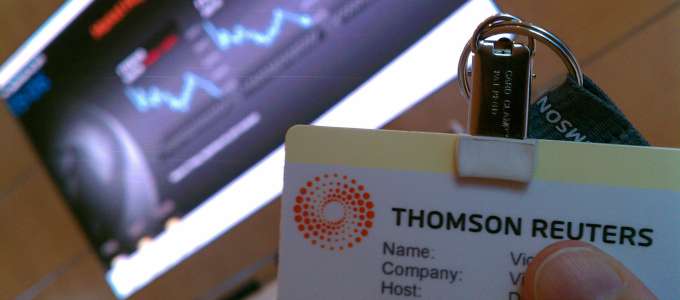
Media company Thomson Reuters Corp. launches an inclusion initiative that affects its employees, market and world.
by Amy Whyte
July 20, 2015
Last year, media and information firm Thomson Reuters Corp. launched a complete review of its strategic approach to corporate responsibility. The result was a unification of diversity and inclusion, sustainability, and corporate responsibility goals, creating a stronger and more centralized approach to corporate responsibility and inclusion.
As the new global head of corporate responsibility and inclusion at Thomson Reuters, Patsy Doerr is responsible for overseeing the new approach. While Doerr is proud of the work her company has already done in this space — Thomson Reuters being one of the companies that signed the Amicus brief in support of marriage equality prior to the U.S. Supreme Court decision — she said she looks forward to accomplishing even more in her new role.

Doerr recently spoke with Diversity Executive regarding the new strategy and how company leaders should handle the legalization of gay marriage. Below are edited excerpts from her interview.
What led Thomson Reuters to establish its new corporate responsibility and inclusion approach?
At Thomson Reuters, we believe that bringing together corporate responsibility and diversity and inclusion into one global department empowers sustainable growth to support the diversity of our people, our markets and our world.
CR&I touches every area of our business. A strong, centralized approach to this platform strengthens employee engagement and activism, customer service and retention, talent acquisition and working globally with various regulatory bodies in the countries where we do business. Moreover, operating throughout the world as a responsible business with a diverse workforce makes us stronger and more successful, and ultimately drives long-term value for our shareholders. All in all, a win for everyone.
How can this new approach better support diversity and inclusion goals?
Understanding that this platform is central to sustaining a successful business and driving growth lends credibility to the cause. Our CR&I strategy incorporates what we offer as a business as a way to engage more broadly with all stakeholders. Buy-in from our senior leadership team was critical to making CR&I a priority across the company globally.
Our strategy is built around three pillars: Our People, Our Markets, Our World.
Our People: Making CR&I a top priority and acting as an ethical business draws bright, engaging and ambitious talent to our company. A diverse workforce is a strong workforce and keeps our company invigorated.
Our Markets: The diversity of our people and their talents allows us to innovate and to develop products and services that help our customers make decisions and act with confidence in an increasingly complex world. Diversity of thought drives our sustainability agenda and enhances strategic partnerships with customers, enabling sustainable business growth and maximizing our external connections.
Our World: We collaborate with our people, our partners and customers to support the communities in which we live and work through volunteering, fundraising and environmental action.
How will the recent SCOTUS decision legalizing same-sex marriage in the United States affect your corporate responsibility and inclusion strategy?
At Thomson Reuters, I’m pleased that we have introduced same-sex partner benefits in as many countries as we legally can. There is still much work to do, and we are working on fostering equality for our workforce in many more countries. Personally, I am proud that Thomson Reuters was one of 379 companies that signed the Amicus brief in support of marriage equality, which urged the Supreme Court to support marriage equality.
What should companies be doing to support workplace equality for all groups in light of this ruling?
I believe that corporate support of equality initiatives will help drive change globally. Many corporations understand that diversity is a strength and fostering an inclusive workplace is beneficial to driving business growth. As this issue continues to be amplified around the world, corporations should take part in the conversation — adding an impactful voice to those who fight for justice around the world.



